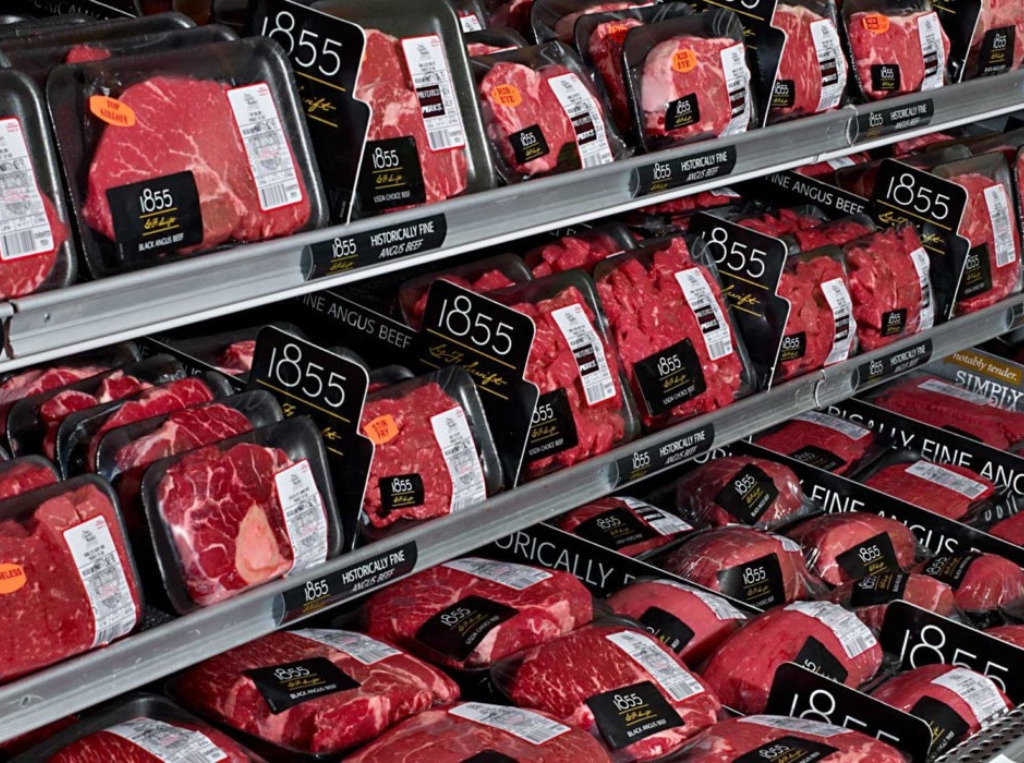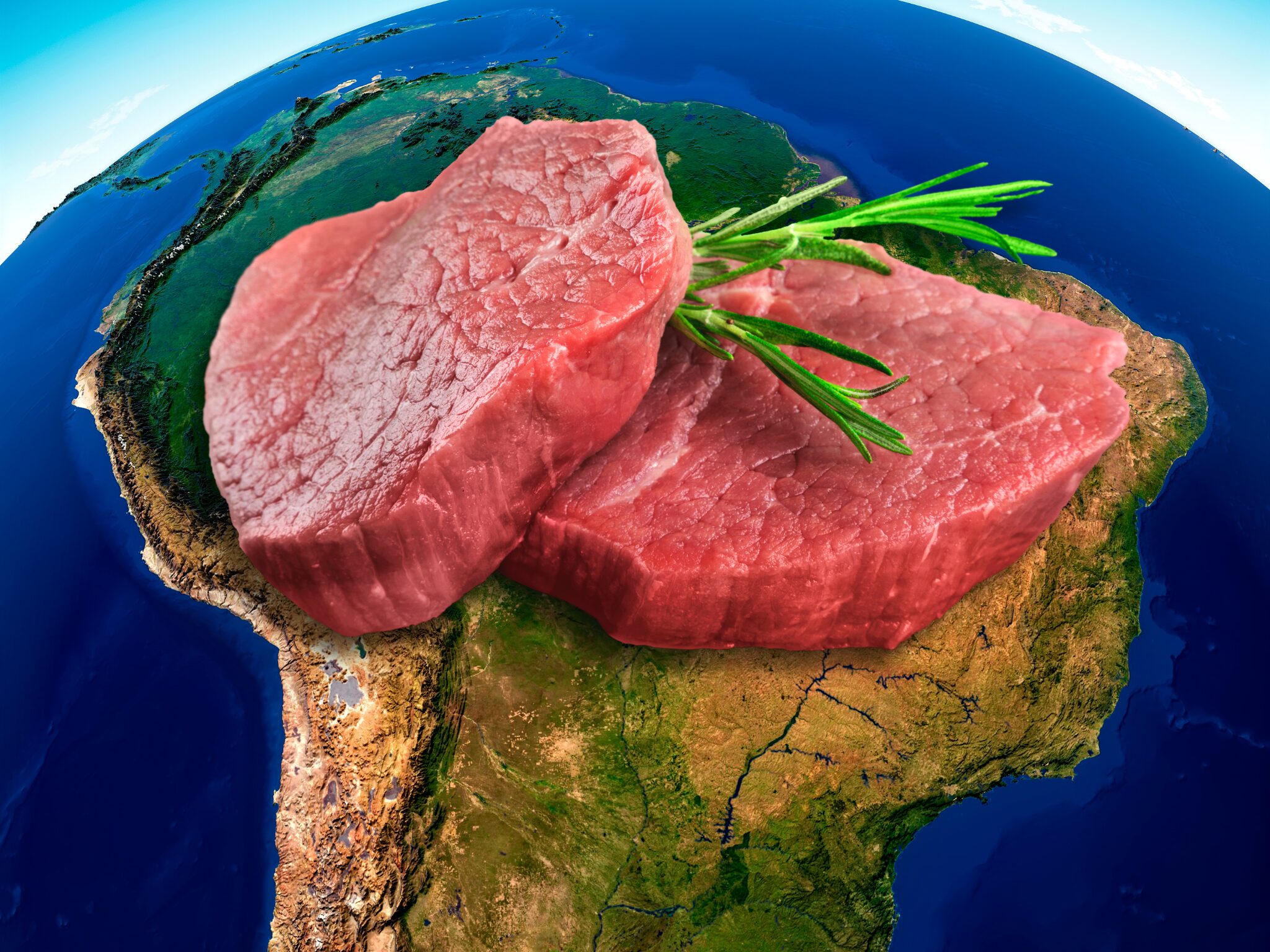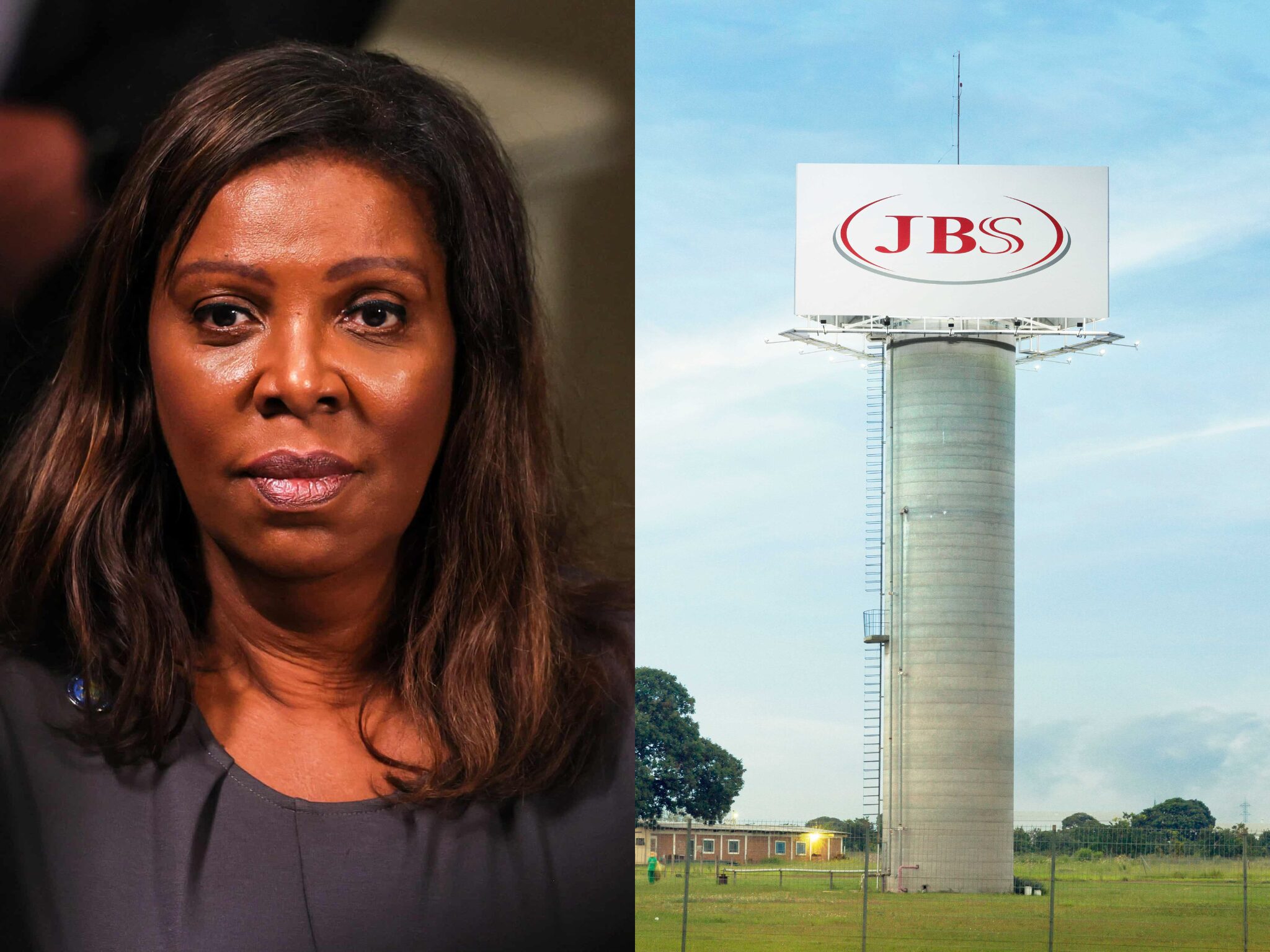JBS Lawsuit: What New York’s Case Against the World’s Biggest Meat Company Means for the Livestock Industry
6 Mins Read
Brazilian meat giant JBS has faced plenty of lawsuits in its time – but the latest one could be the most damaging one of them all, given that it comes from a state attorney general. If the government intervention prevails, there will be major repercussions for the wider meat industry.
After years of legal challenges, fines, settlements and intense criticism, there has been a major shift in the conversation about JBS, its greenwashing and its IPO, which has now firmly become political.
In January, a group of senators in the US and MPs in the UK wrote to the US Securities and Exchange Commission, urging the watchdog to block the meat producer’s proposed IPO on the New York Stock Exchange. They cited corruption, human rights abuses, monopolisation of the meatpacking market, deforestation and environmental risks to outline why the company shouldn’t be given access to US capital. With an IPO now reportedly delayed, the letters seemed to have been successful – at least for now.
Now, JBS is facing another political challenge, with New York attorney general Letitia James suing the company’s US arm for misleading consumers about its climate goals, arguing that it has profited from “fraudulent and illegal environmental marketing practices”. The lawsuit takes aim at its 2040 net-zero goal, claiming that it has had “no viable plan” to meet this commitment despite making “sweeping representations” to consumers.
The attorney general notes that JBS USA has documented plans to increase meat production, which is counterproductive to lowering your climate footprint. Plus, it has not calculated most of its greenhouse gas emissions from its supply chain (scope 3), and thus has no way of knowing whether it can successfully reach net zero by 2040.
“The JBS Group knows that if consumers perceive its products as unsustainable, it could reduce consumer demand for beef and harm the JBS Group’s share of the US beef market,” the suit reads. “In public statements, the JBS Group has recognised that sustainability claims can, in effect, provide environmentally conscious consumers with a ‘license’ to eat beef.”
JBS’s long history of legal troubles

This is far from the first time JBS has been accused of greenwashing. As James’s case mentions, only last year, the BBB National Programs’ National Advertising Division (NAD) recommended the company stop making net-zero claims in its advertising, noting that these statements weren’t supported by evidence. Since the NAD’s ruling isn’t legally binding, the meat giant ignored the advice.
With more than 70 brands and operations in over 190 countries – such as Pilgrim’s Pride, Swift and Certified Angus Beef – JBS’s influence over the food industry can’t be understated. Neither can its emissions, which according to its own data reached 71.1 million tonnes of CO2e in 2021. That is, as the New York suit states, more than the entire nation of Ireland.
However, an external audit from the food sustainability non-profit the Institute for Agriculture and Trade Policy reveals that this figure is much higher in reality. It found that JBS hasn’t taken into account most of its scope 3 emissions – which make up 97% of its emissions – and doing so would bring them up to 421.6 million tonnes of CO2e. This represents a 51% rise in emissions from 2016 to 2021.
A major chunk of the company’s climate footprint comes from deforestation in the Amazon, which has already sprawled more than 2.4 million acres. JBS says it plans to eliminate these emissions by 2026, but the New York lawsuit notes that the meat producer’s GHG calculations didn’t account for them in the first place.
JBS has also been involved in a child labour controversy, with a Wisconsin cleaning company allegedly employing over two dozen minors to clean dangerous meatpacking plants for JBS across the US. In a separate case, it has been fined over a fatality at one of its facilities.
There are cases of corporate malpractice as well, with the company found to have been involved in price-fixing schemes in the beef, poultry and pork markets. Over 12 years, it engaged in an international bribery corruption scheme for which it was fined $3.2B in 2017. Its holding company J&F Investimentos, meanwhile, was ordered to pay over $256M after pleading guilty to engineering a political bribery effort in 2020. The same year, the SEC fined J&F and JBS owners Joesley and Wesley Batista $27M – who have previously been imprisoned for insider trading – for an extensive bribery scheme to acquire US meat producer Pilgrim’s Pride in 2009.
And last year, it was sued for issuing $3B worth of sustainability-linked bonds to its US investors. The company estimates its current criminal exposure at $463.5M, with an additional $2.1B resting on ongoing civil, tax, and labour litigation claims.
Why the JBS lawsuit could be significant for the meat industry

New York’s attorney general is asking JBS to cease its net-zero ad campaign, conduct a third-party audit of its compliance with the state’s consumer protection statutes, and return ill-received profits from misleading the public, and pay penalties of a minimum of $5,000 for each violation (the number of which will be determined at trial).
This case has major implications for the overall industrial livestock industry, given that this isn’t being initiated by non-profits or individual activists, but a state attorney general herself. Government intervention on this matter is a strong signal of things to come – it won’t just mean a fine for JBS, instead sending a message to livestock companies that greenwashing has both financial and political repercussions, which in turn also spur a PR problem.
While states like California have introduced anti-greenwashing laws and the Federal Trade Commission publishes Green Guides to help companies comply with consumer protection laws, the regulatory landscape for agricultural companies isn’t watertight enough to prevent greenwashing. Just last year, fellow meat giant Tyson Foods launched a ‘climate-friendly’ line of beef that claimed to emit 10% fewer greenhouse gases – but there was no mention of what baseline it was using, or much information about how it lowered these emissions.
This was signed off by the USDA – but the department uses a benchmark almost 25% higher than the average environmental footprint of beef cattle in the US, which means most American beef can effectively qualify to be climate-friendly. And research has shown that consumers prefer to opt for ‘climate-friendly’ products, but some remain unsure about the climate impact of beef – the highest-emitting product in the food system – and have been misled by the Brazen Beef label.
But litigation such as James’s lawsuit can be a wake-up call to industrial meat producers that despite the lack of stronger regulation from bodies like the USDA, they can’t just claim to be aligned with the 1.5°C target, lay out a net-zero target, or make substantial emissions reduction claims without a specified plan and while their production and pollution are both on the rise.
JBS and the meat industry can’t keep lying – if they do, there will be consequences.




